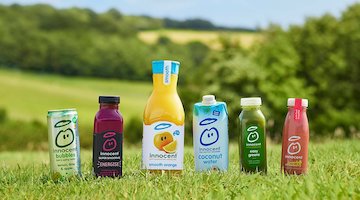 https://www.3keel.com/wp-content/uploads/2022/01/BFC_sf.jpg
200
360
Richard Scott
https://www.3keel.com/wp-content/uploads/2023/04/3keel_logo-1.png
Richard Scott2022-01-26 15:35:332022-06-09 10:24:32Accelerating the transition to circular fashion
https://www.3keel.com/wp-content/uploads/2022/01/BFC_sf.jpg
200
360
Richard Scott
https://www.3keel.com/wp-content/uploads/2023/04/3keel_logo-1.png
Richard Scott2022-01-26 15:35:332022-06-09 10:24:32Accelerating the transition to circular fashionCASE STUDY BAKKAFROST
Review of packaging sustainability & recycling in the seafood industry
Improving the sustainability of Bakkafrost’s packaging portfolio by establishing baseline metrics, recycling landscapes and scope for innovation
ish and seafood come with particular packaging challenges. Not only does the packaging often need to be air- and watertight, but also highly insulating to retain the freshness of the product. The seafood industry has traditionally turned to plastics to solve these issues, favouring expanded polystyrene (EPS) boxes for their lightweight, foamy and insulating character. Today, the low recyclability of EPS is driving fish producers on a search for more sustainable alternatives.
In 2019, 3Keel worked with salmon producer, Bakkafrost on building an evidence base for target setting as part of a sustainable packaging strategy. To this end, we conducted an assessment of the sustainability performance of Bakkafrost’s packaging portfolio against a range of metrics, including recyclability and renewability. The analysis revealed that their overall packaging footprint could be broken down into just five main materials.
Assessing the varying potential for recyclability across these five made it possible to identify the materials that would yield the greatest benefit through substitution. As a result, 3Keel were able to recommend alternative materials to boost the recyclability performance of the portfolio, where opportunities to shift to a reuse model were limited.
Many packaging materials are technically recyclable, but whether or not they actually get recycled depends on the policies, technologies and behaviours where the material is consumed. As a complement to the packaging portfolio analysis, 3Keel also conducted research into the recycling landscapes within Bakkafrost’s key markets, aimed at gaining an understanding of the reality for the packaging being recycled in those geographies.
Further to the identification of the most prominent materials in the packaging portfolio, the 3Keel team tailored the research to focus on the company’s top two formats. Information was sought on the latest recycling rates, infrastructure, legislation and regulation, and consumer trends and attitudes in five specific countries. This allowed for the identification of market-specific risks ranging from the impact of China’s ban on plastics imports to the calls of Russian protesters for sustainable waste management. Building on these, we provided a suite of recommendations on how Bakkafrost could best ensure sustainable outcomes for their packaging across the world.






